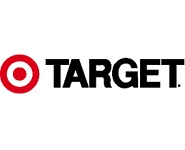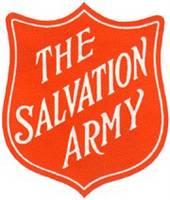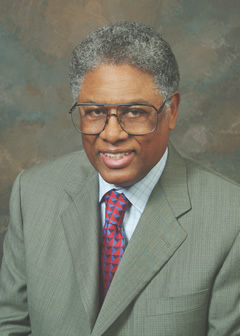Happy Holidays
And Merry Christmas.
I'm on the road for a while, and can't say for sure when I'll get a chance to scout for further examples of good/bad/ugly.
Keep checking -- and we'll see you when we see you! God bless!
 Accentuate the Positive
Accentuate the Positive
A regular rant about the good, the bad, and the ugly of public relations. MOVING!!! to http://positiveposition.com/blog Please reset your bookmarks!!! Wait for redirection.
And Merry Christmas.
 The Minneapolis-based retailer Target took a hard look at its solicitation policy, and made a harder decision to enforce it against Salvation Army bell-ringers.
The Minneapolis-based retailer Target took a hard look at its solicitation policy, and made a harder decision to enforce it against Salvation Army bell-ringers.
 As you might expect, there has been a media and consumer backlash. The Salvation Army announced that the ban outside of Target stores would cost the non-profit in excess of $9,000,000 for this season's kettle campaign. And to make matters worse, some of the boycotters are adding their own agenda to the fire, claiming the bell-ringer ban is really an attack on Christians fueled by gay rights organizations.
As you might expect, there has been a media and consumer backlash. The Salvation Army announced that the ban outside of Target stores would cost the non-profit in excess of $9,000,000 for this season's kettle campaign. And to make matters worse, some of the boycotters are adding their own agenda to the fire, claiming the bell-ringer ban is really an attack on Christians fueled by gay rights organizations.
 Not content to sit on the sidelines, Wal-Mart is one of a number of competitors that has embraced the bell-ringing volunteers -- and has even announced it will match those gifts dollar for dollar (up to $1,000,000) through Christmas.
Not content to sit on the sidelines, Wal-Mart is one of a number of competitors that has embraced the bell-ringing volunteers -- and has even announced it will match those gifts dollar for dollar (up to $1,000,000) through Christmas.
 The press attention has been extremely one-sided. Outside of the initial reports, there has been no mention of the fact that many shoppers might prefer not having to make a token donation each time they walk by. Recent stories have failed to take this into account. Also -- not only will the Salvation Army more than make up that deficit because of the backlash, it doesn't rely on the kettle drive for everything. By far, the biggest source of revenue for the Salvation Army is planned giving and bequests. The organization is in better financial shape than just about any non-profit in history. It will be interesting to see how the Salvation Army really fares at the end of the Kettle Drive, and even more interesting to see how Target's holiday sales end up. It's not out of the question that both will end up better for the deal -- and Wal-Mart could sneak in and get a piece of that too.
The press attention has been extremely one-sided. Outside of the initial reports, there has been no mention of the fact that many shoppers might prefer not having to make a token donation each time they walk by. Recent stories have failed to take this into account. Also -- not only will the Salvation Army more than make up that deficit because of the backlash, it doesn't rely on the kettle drive for everything. By far, the biggest source of revenue for the Salvation Army is planned giving and bequests. The organization is in better financial shape than just about any non-profit in history. It will be interesting to see how the Salvation Army really fares at the end of the Kettle Drive, and even more interesting to see how Target's holiday sales end up. It's not out of the question that both will end up better for the deal -- and Wal-Mart could sneak in and get a piece of that too.
Hey Ike, I tell you who needs some help with publicity... it's that dolt Michael Jackson... having kids over to his Neverland Ranch was a great PR move... Yeah... right!
Clear Channel needs some PR help too with their "less is more" venture... most clients call it "less for me, more for Clear Channel."
Ben -- drop me an e-mail about the Clear Channel example. Is this a case of a message that sounds good on paper, but is totally empty?
 Kurt Busch is a NASCAR champion, who was just a punch or two away from being the next Ron Artest.
Kurt Busch is a NASCAR champion, who was just a punch or two away from being the next Ron Artest.
 The state of Alabama has taken a lot of grief from the rest of the country (here and here and here, and many others in Google News search results) over a failed statewide referendum to remove racist language from the Alabama Constitution.
The state of Alabama has taken a lot of grief from the rest of the country (here and here and here, and many others in Google News search results) over a failed statewide referendum to remove racist language from the Alabama Constitution.
 Too much spinning can make you dizzy, and you wind up throwing up on your customer base.
Too much spinning can make you dizzy, and you wind up throwing up on your customer base.
 Those reports are tied into causing a number of accidents, but no injuries.
Those reports are tied into causing a number of accidents, but no injuries.
"We don't think a recall is appropriate," Mr. Gates said. "We haven't had any serious injuries or fatalities. We've been saying this is not a safety defect."As a driver, that would make me feel more secure. As a DaimlerChrysler stockholder, I'd feel more secure if Mr. Gates didn't leave himself open to creative editing. Some journalists will latch onto parts of your statement if you are not careful. Like in this Associated Press brief that hit dozens of television news sites, like this one:
CBS News first reported the request for a recall.
The traffic agency could force the company to recall the trucks, but that process could take years and could potentially be delayed by litigation.
Mr. Gates said the problems with the trucks generally occurred at low speeds during turns. He also said most drivers would have advance warnings of a potential problem because of excessive tire wear or unusual noises coming from the front of the trucks.
The company spokesman says it does not think "it rises to the level of a safety defect."Wow. Big difference. And there's no context to let you know that Gates has a point, instead of just blowing smoke.
"For this to be a real safety issue, wheels would be falling off without warning or at high speeds -- and there's no recorded instance of that. Most drivers were alerted by unusual front-end noise, or tire wear."
 NYU is staging a boycott of Coca-Cola products, because of allegations of child labor and human rights violations in El Salvador.
NYU is staging a boycott of Coca-Cola products, because of allegations of child labor and human rights violations in El Salvador.

 Actually, Thomas Sowell said it this way:
Actually, Thomas Sowell said it this way:
"It is amazing how many people think that they can answer an argument by attributing bad motives to those who disagree with them. Using this kind of reasoning, you can believe or not believe anything about anything, without having to bother to deal with facts or logic."
A British cyber-security firm is reporting that the biggest looming threat on the net isn't viruses or exploits... it's good old-fashioned smear campaigns.
1 Comments:
Ike,
Just wanted to say Merry Christmas to you, Brenda and all your loved ones.
Be safe in your travels this holiday season.
Best,
Randy Steinman
Sports Director
CKCO-CTV Canada
Your two cents...
<< Home